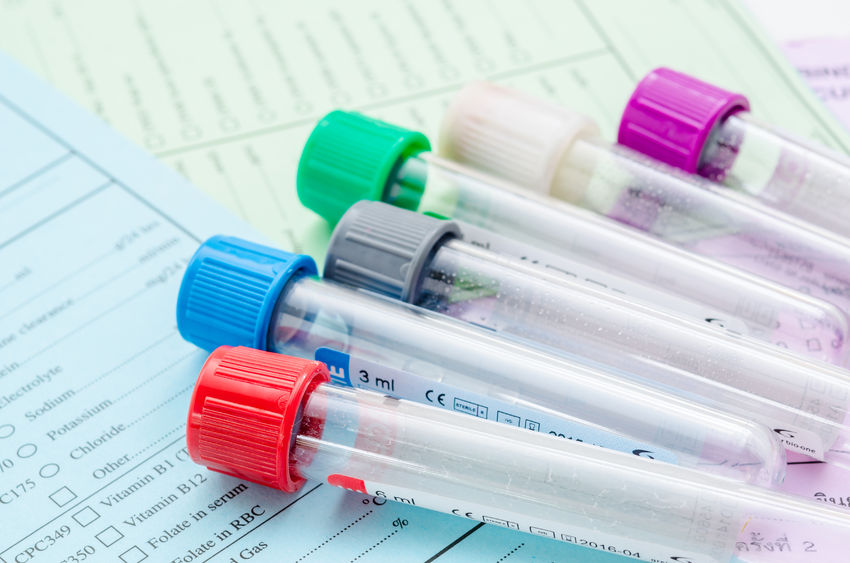
GGT
Also known as Gamma Glutamyl Transpeptidase BloodWhat is this test?
Gamma Glutamyl Transpeptidase (GGT) test is used to measure the level of gamma-glutamyl transpeptidase in the blood.
Importance of Gamma-glutamyl transpeptidase:
Gamma-glutamyl transpeptidase is an enzyme is present in various organs throughout the body. It is mainly present in the liver. It helps in the breakdown of medicines and toxins in the liver. Usually, gamma-glutamyl transpeptidase levels are low in the blood, but when the liver is damaged the gamma-glutamyl transpeptidase levels will be high in your blood. A high level of gamma-glutamyl transpeptidase in blood indicates damage to the liver or bile ducts. This occurs when the liver is injured or bile duct is blocked.
Why this test is performed?
This test is one among many tests used to evaluate your liver function. Your doctor may ask to perform this test if you have an existing liver disorder or if you experience any signs and symptoms of liver damage such as yellowing of skin or eyes, dark colored urine, nausea and/or vomiting, itchy skin, lack of energy, pain and swelling in the abdomen etc. This test may also be performed as part of a follow up to other liver tests.
This test may be recommended to you by your doctor to differentiate between liver and bone disease in case of an elevated alkaline phosphatase levels (ALP) in the blood. Individuals with a bone disease only show elevated ALP levels in their blood. Whereas in liver disease or disease of the bile duct, both GGT and ALP levels are increased. Therefore, individuals with high ALP and normal GGT levels are more likely to have a bone disease.
Your doctor may ask to perform this test to screen for alcohol abuse in chronic alcoholics. This test may also be performed as part of a follow up in individuals receiving treatment for alcoholism or alcoholic hepatitis.
This test may also be recommended to you by your doctor if you have a family history of liver disease, or if you or on medicines that can cause liver damage (acetaminophen, clopidogrel, phenytoin, etc).
If you have a family history of liver problems, your doctor may ask you to perform this test on a 6-monthly basis or a yearly basis. Patients with liver disorders should perform this test on a regular basis, as instructed by the doctor.
Also known as Gamma GT Blood, GGT Test, GGTP Test, Gamma Glutamyl Transferase (GGT) Test, Serum GGT Test, Serum GGTP Test, Gamma Glutamyl Transferase (GGT), Gamma Glutamyl Transpeptidase, Gamma GT, GGTP, Serum GGT, Serum GGTP.
Test Preparation
Inform your doctor if you are on any medications, have any allergies or underlying medical conditions before your GGT. Your doctor will give specific instructions depending on your condition on how to prepare for GGT.
You may need to fast (not eat or drink) for 8 to 12 hours prior to the test. Your healthcare provider may advise you not to drink alcohol within 24 hours of the test.
Understanding your test results
If the test result falls in the normal reference range generally no medical intervention is necessary.
Low or normal GGT test results specify that you are less likely to have liver disease.
If the test result shows high GGT levels in the blood may indicate a problem with liver function. This can be mainly due to liver diseases like cirrhosis or hepatitis. Increased GGT levels may also be due to other diseased conditions such as diabetes, congestive heart failure, pancreatitis, or a blockage in the blood flow of the liver. Individuals who chronically abuse alcohol, smokes or who are on medicines that can cause liver damage (acetaminophen, clopidogrel, phenytoin, etc) also may show increased GGT levels in their blood. Your doctor may ask you to perform a few more additional tests to specifically locate the exact cause of the liver damage.
If GGT is measured in relative to ALP, and if both GGT and ALP are elevated, it may indicate liver disease or disease of the bile duct. Individuals with high ALP and normal GGT levels are more likely to have a bone disease.
If you have higher or lower than normal levels of GGT in blood consult your doctor for further instructions. Based on the test results, your doctor may advise appropriate medical treatments, lifestyle modifications, or further diagnostic tests.
| Gender | Age groups | Value |
| MALE | All age groups | 12 - 48U/L |
| FEMALE | All age groups | 6 - 29 U/L |